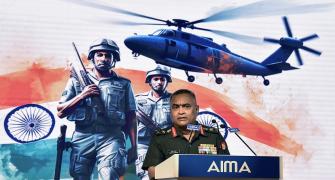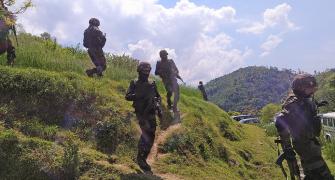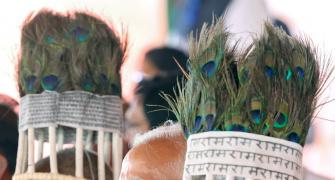"I am hopeful that sometime in the near future Pakistan will open up the possibility for Indian business. When it does we will be there in the automotive business, we will be there in the hotels and software sector," Tata group chief Ratan Tata told PTI.
"We believe that we can establish viable businesses in Pakistan, even joint ventures with Pakistani companies to serve that country's economy," he said, exuding confidence that Tatas could add value and create jobs in Pakistan.
On the group's expansion in neighbouring China, Tata said, "In hotels, we have been endeavouring to do that. In software, we are already there. In automotives, we have some agreements but we have not seen that much action so far."
Emphasising that Tatas would like to see the group's presence in all the countries, where it enters, as an "enterprise in that country, working with that country and not against that country."
Elaborating on the group's philosophy on international business expansion, he said he would be "most satisfied" if the group was remembered as a corporate citizen that really contributed to the growth and development of a country and "not one that took away from that country for our prosperity somewhere else."
Asked if the increased international presence would be through fresh investment or by way of acquisitions, Tata said, "it will be a mix of both."
Speaking about its transnational operations, Tata, who visited Islamabad earlier this year on the invitation of the neighbouring country's Prime Minister, he said, "We are told that there are opportunities and a political dialogue between the two countries is on."
Terming the overseas operations as "internationalisation" instead of globalisation, which would mean presence in all continents, Tata said, "What we are trying to do is to dispel the feeling amongst the potential customers -- 'oh we are dealing with an Indian company'.
"We want them to feel that it is an international company. You do not have to be concerned. We will hope that a Pakistani Bank would not be afraid of putting their data on our network (telecom and international communication operations," he said.
Tata said the group was seeking to create awareness wherein it was naturally accepted in any country, where it was seeking a business opportunity.
"What I have been talking is an awareness, and not a brand equity exercise, but emotively to be in those countries in terms of business philosophy to be seen as an enterprise in that country, working with that country and not against that country," he reiterated.
Asked if the philosophy was influenced by the opposition to MNCs in the initial days of opening up of the economy and emergence of Bombay Club, a grouping of Indian business houses to check the onslaught of MNCs in early 1990s, Tata said he was never a part of Bombay club.
Tata, however, admitted that he learnt from the experience of that (reforms) era when "we quite often looked at someone coming to India to extend their business that exists elsewhere (as an attempt) to exploit our market, put nothing into India other than their business and took the profits out for their growth and prosperity."
The group's philosophy was to "partner (with) those countries in infrastructure, in development, in bringing knowledge, in collaborating in new fields, just to be as nationalistic in Bangladesh for the Bangladeshis or in Vietnam for the Vietnamese as we would be in India," he said.
"Today in South Africa, the name Tata has some meaning. We will build on that and we will grow in South Africa to have a meaningful presence and a presence that may be different from an exploiting presence. We have done the same kind of thing when we chose Bangladesh," he added.
On business opportunities in South Africa, he said the group was likely to be involved in a major power project there.
Stating that Tatas were awarded the second telecom network operator contract, he said: "We have gained a position of trust by the government. So we took this opportunity to launch the Indica and commercial vehicles and they have been a great success."
On the group's Bangladesh foray where the group was proposing investment of $2.5 billion, Tata said they were negotiating with them (the government) for availability and cost of gas.
"We are receiving a great deal of support from the Bangladesh government in moving forward." Stating that the investment in Bangladesh might be the largest in areas of infrastructure in that country, Tata said the project (Bangladesh Detailed Feasibility Report) was on track.
"The third leg is fertilisers, where we are looking at setting up a fertiliser plant," he said.
Expressing his commitment to Bangladesh, he said, "We looked at the steel and power plants. Bangladesh desperately needs power. It imports all its finished steel. We will now be able to feed Bangladesh from within Bangladesh."
He, however, said if Bangladesh chose not to use the group's steel, Tatas would export it "because everything we are making there is exportable".
Tata said he hoped the Bangladesh government would be able to overcome "an old lack of faith in an Indian entrepreneur, saying that this entrepreneur is keen on the development of Bangladesh, other than taking out the profits from it".







